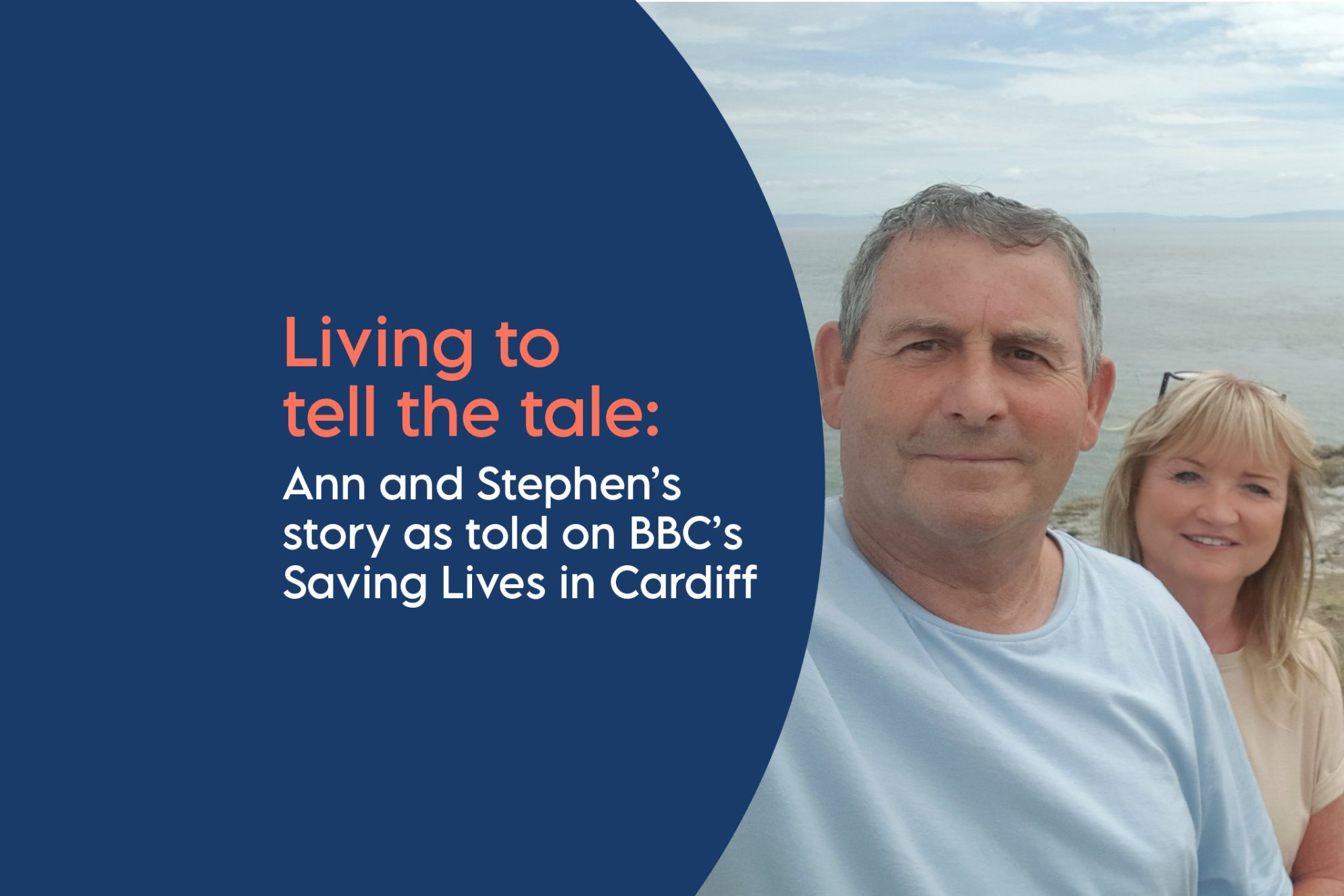
Living to tell the tale: why human experience matters in healthcare communications
Life-or-death moments change everything for patients and their loved ones.
For one of Freshwater’s longest-serving colleagues, Ann Rees, that moment came when her husband, Stephen – a 68-year-old electrician – collapsed unexpectedly at work, suffering a cardiac arrest that would later highlight the vital role of the Welsh NHS as part of a TV documentary.
“He had a cardiac arrest at work and his heart stopped beating for 25 minutes. His colleagues had to use a defibrillator on him nine times,” said former Freshwater employee, Ann, after sharing Stephen’s life-changing experience at the University Hospital of Wales in Cardiff, which was captured on the BBC’s Saving Lives in Cardiff series.
One year on, Ann reports that “he lives to tell the tale,” – a phrase that has brought a renewed sense of purpose to our communications work with the NHS.
Freshwater has a long history of providing strategic communications and PR support to health and care sector clients, helping them to improve people’s health and deliver the best possible patient outcomes.
Its recent work with NHS Blood and Transplant’s Organ Donation campaign, for example, shared real-life stories of organ transplant recipients to increase registrations on the NHS Organ Donor Register and encourage people to discuss their decision with loved ones. It was a powerful reminder that amplifying human stories matters – especially when the narrational conversation about healthcare so often overlooks quiet, life-changing successes.
Ann’s family is now experiencing one of those very successes firsthand. Following triple bypass surgery, Stephen is now on a steady path to recovery. Ann commented: “He’s feeling amazing and his medical team is really pleased with him. The doctors are happy to see him doing better and getting back to his usual routine and hobbies, including being a DJ!”
Stephen’s story is a testament not just his strength, but to the expertise and dedication of the Welsh NHS staff who cared for him. From the moment they dialled 999 for an ambulance and paramedics, through major surgery, to rehabilitation and community support, every part of the NHS was there for Stephen.
Ann added: “From time to time, you see negative headlines about the NHS, but you don’t always hear about all the good stuff they do. The staff’s professionalism, expertise and care have been incredible throughout this ordeal. You don’t realise how complex and sophisticated it is. Stephen has been brilliantly supported by so many different professions and technologies all collaborating and contributing to his survival and recovery.”
Through Freshwater’s work in the health sector, the team often see health and care organisations face huge challenges – whether navigating a one-off crisis or ongoing system pressure -while the positive stories about their impact and success are too often short-lived.
But this life-changing story has brought home the real impact of early intervention – and made Freshwater’s commitment to preventative health campaigns feel more urgent than ever. Freshwater’s campaign for Cancer Research Wales, for example, encouraged early cancer detection. To help the message resonate, the agency used real stories from people who reflected the target audience – showing familiar, relatable faces to prompt action.
“It is amazing how you can come out of that as it wasn’t looking hopeful,” Ann reflected. “Steve was at the Heath Hospital in Cardiff for a month before we had a consultation in June.
If it wasn’t for Professor Indu DeglurkarInd and her team, we don’t know where we’d be now.”
Following Stephen’s cardiac arrest, 65-year old Ann took retirement from Freshwater, where she had worked as an administrative assistant for the past 49 years. She’s now enjoying spending time with her husband going for long walks and lunches and doing DIY jobs around the home.
Her family’s story is a powerful reminder of how life can change in an instant – and why it’s so important that people connect with health campaigns before a crisis occurs. Because when health affects you directly, it brings a new level of awareness and urgency.
It’s in these moments of connection that health communication becomes more than just messaging – it becomes a catalyst for understanding, action and, sometimes, survival.
You can watch the episode featuring Stephen and Ann here: https://www.bbc.co.uk/iplayer/episode/m002bm40
